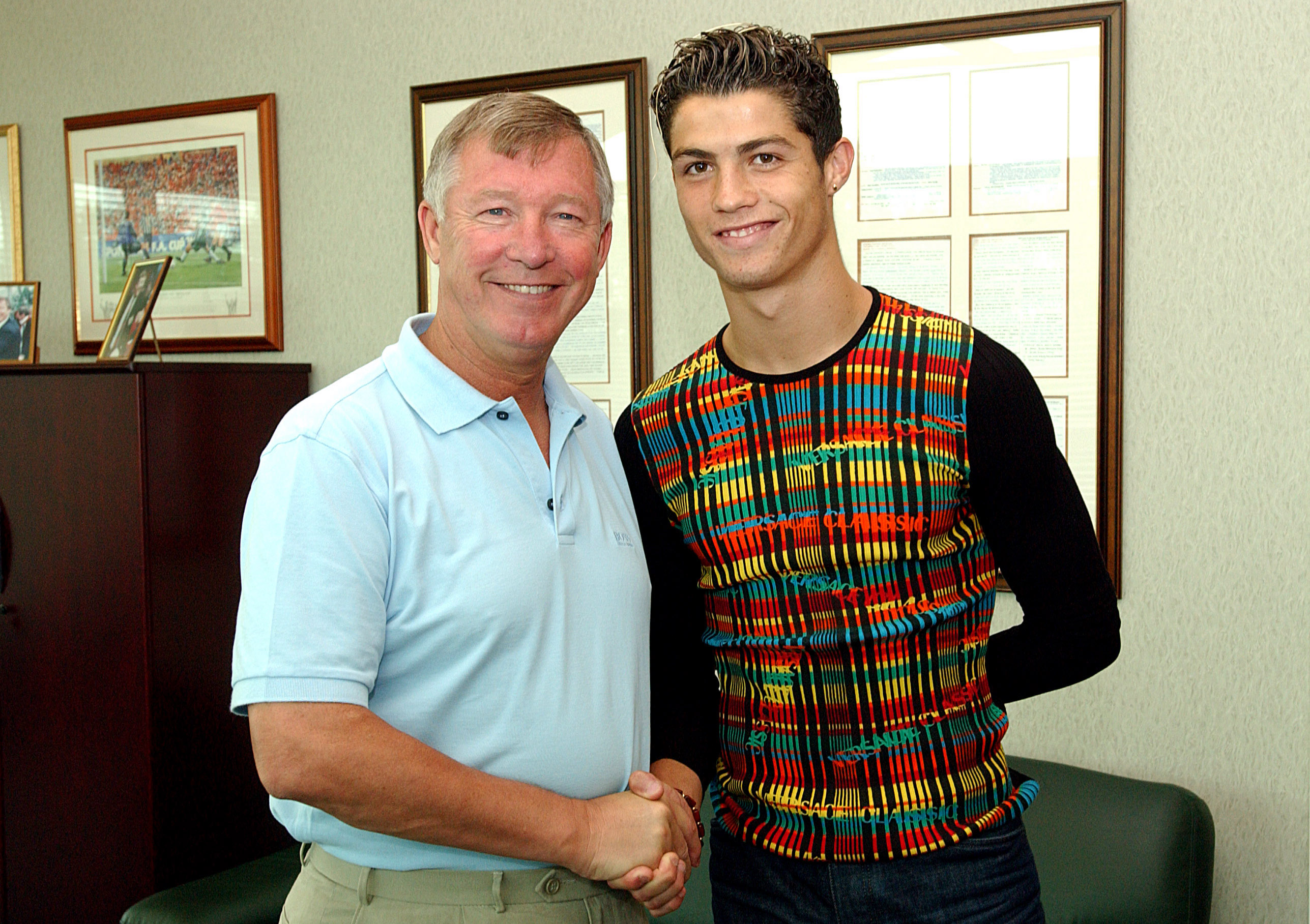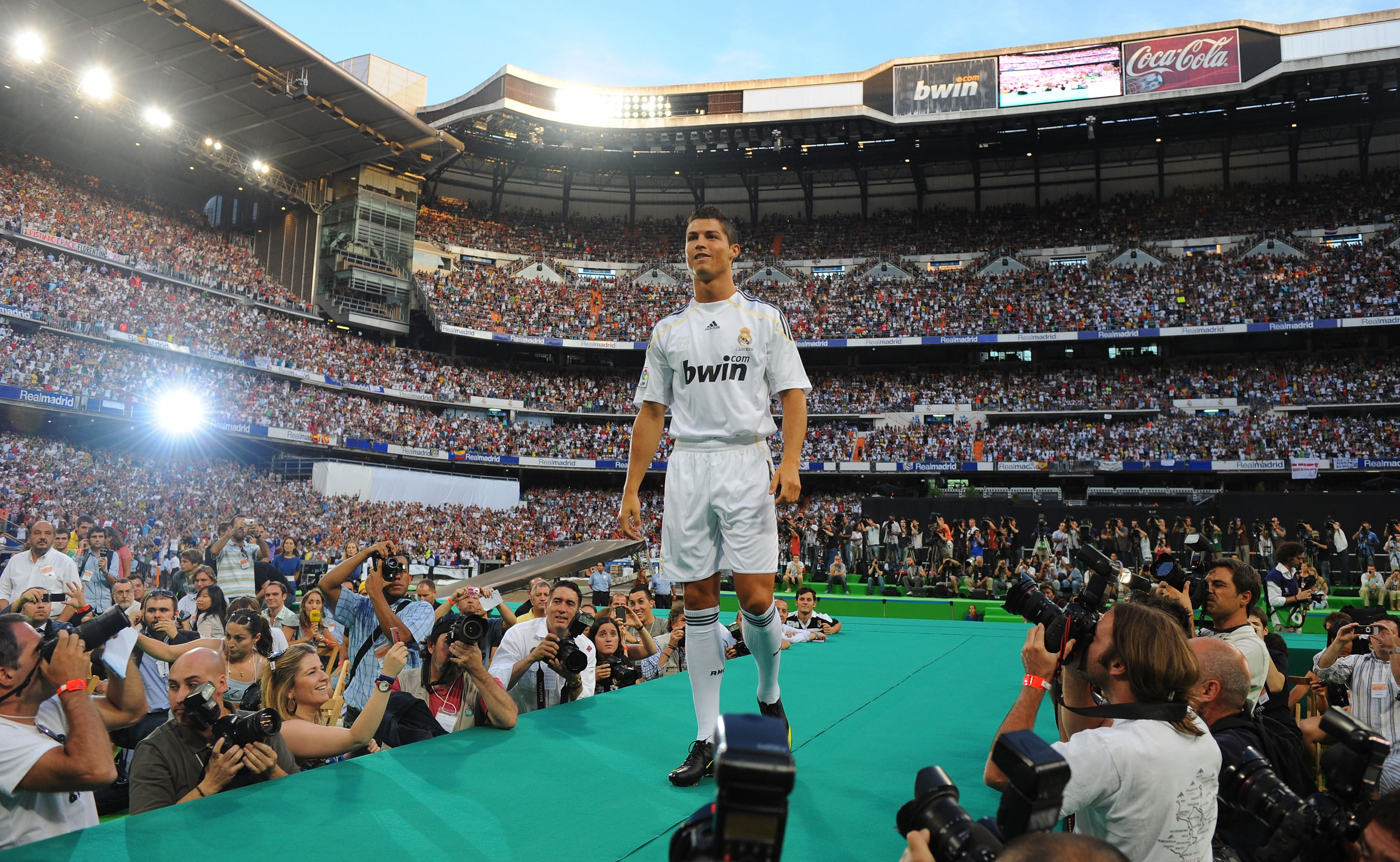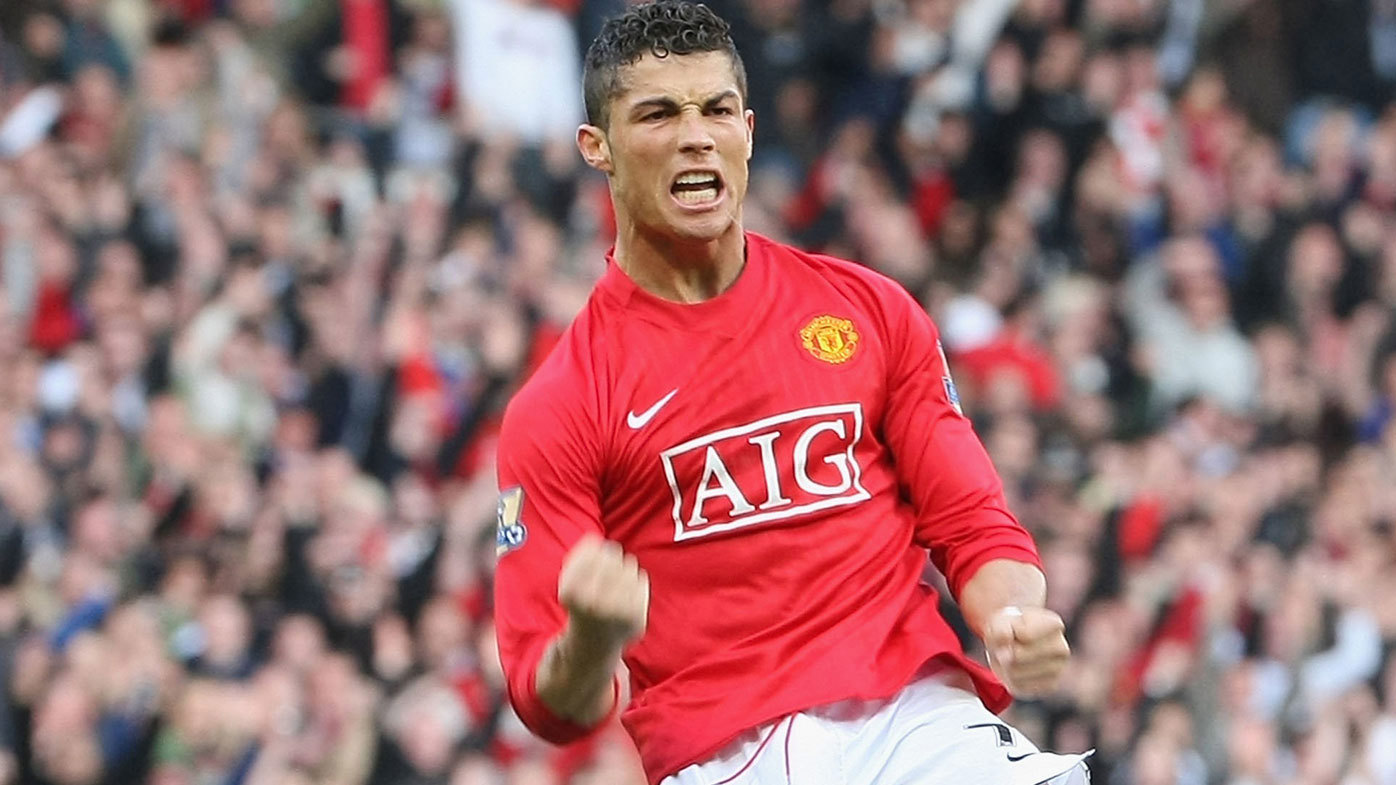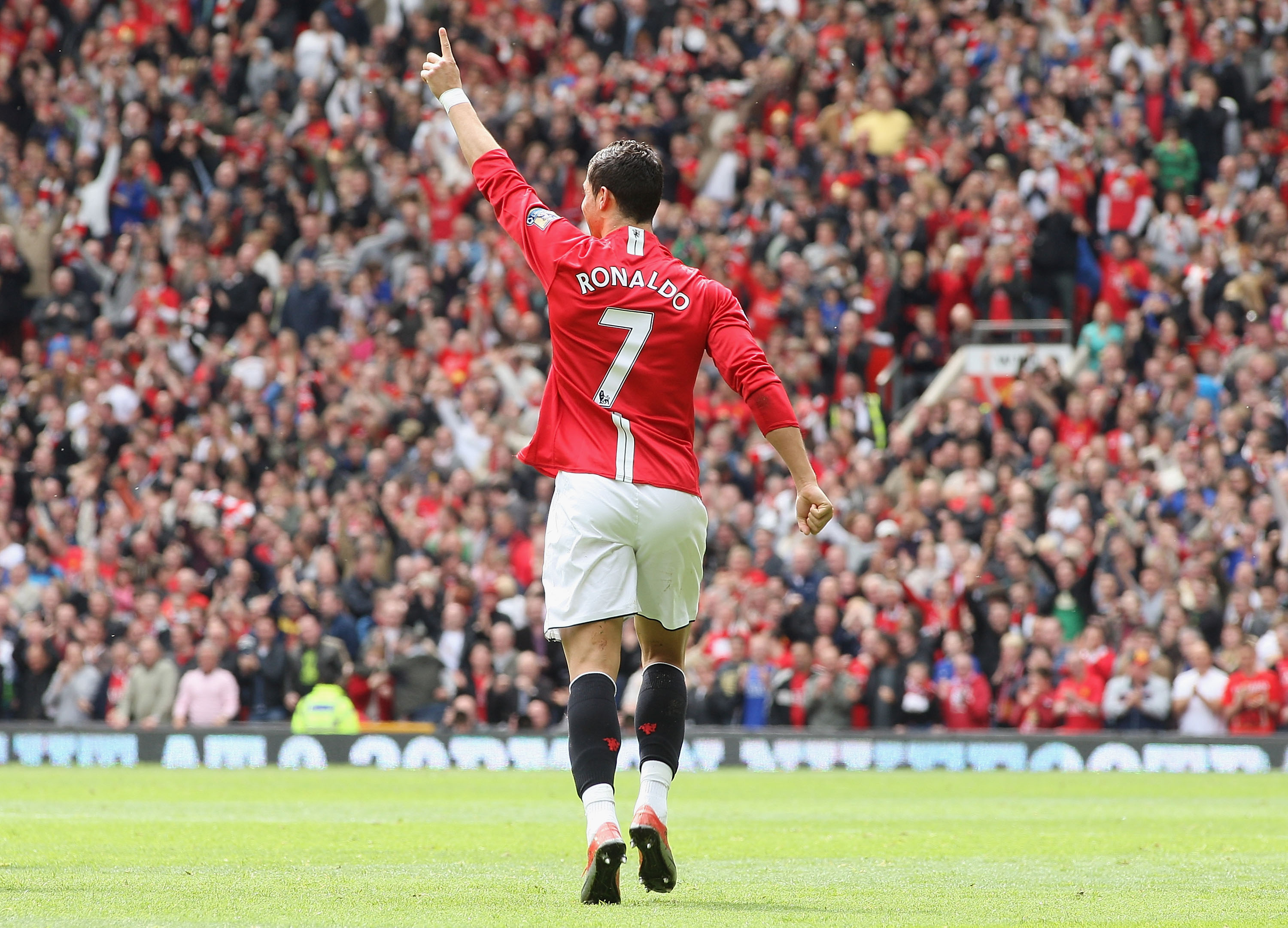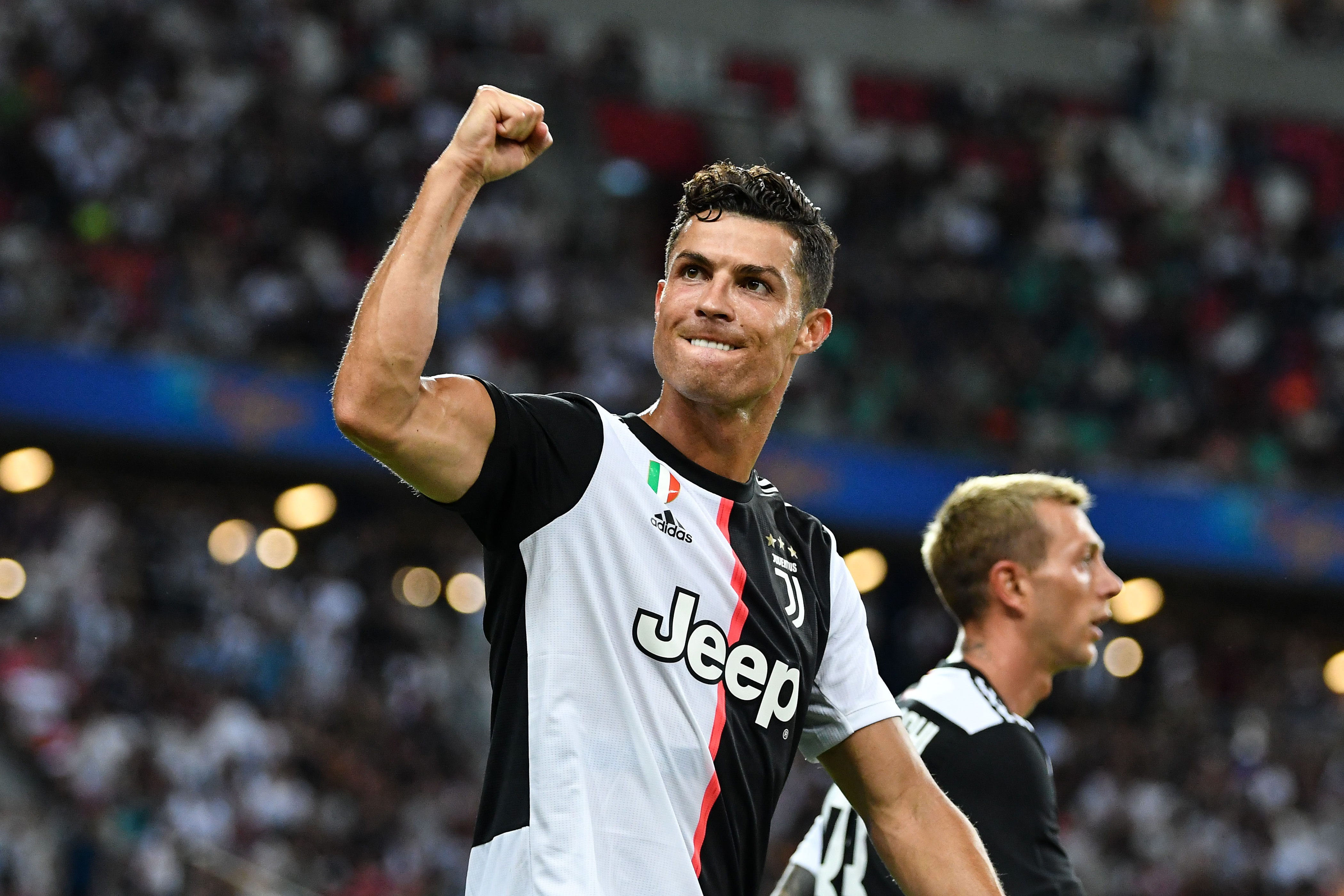It is a tick over 18 years ago now that then Manchester United manager Sir Alex Ferguson did the deal that put Cristiano Ronaldo on the path to superstardom.
For the world’s most recognisable footballer, it was half a lifetime ago; then, Ronaldo was a raw, gawky winger at Sporting Lisbon with a thousand flashy tricks and an untrained eye for goal.
Ferguson had teed up the pre-season friendly in Portugal because he liked the look of the teenager from the island of Madeira. Where others saw merely a showman, the legendary gaffer saw ambition, and endless levels of talent that could be carefully crafted into something special.
Watch Messi, Neymar, Ronaldo and football’s biggest superstars in the UEFA Champions League with every match streaming ad-free, live and on-demand only on Stan Sport from September 15. Start your seven day free trial here!
United lost that match 3-1, and the story goes Ferguson kept the entire squad waiting on the team bus as he thrashed out a deal for the young winger’s services that very night. Soon enough, a £12.24 million deal was done, a then British record for a teen.
Ronaldo went on to play seven seasons at United, winning 10 trophies and scoring 118 goals.
In 2009, after he had completed a 42 goal season that would earn him his first Ballon d’Or award as the world’s best player, Real Madrid came knocking.
READ MORE: UFC Octagon girls hit back at Khabib for ‘useless’ comment
READ MORE: Canadian teenager continues US Open surge with another big scalp
READ MORE: All Blacks star Jordie Barrett has divisive red card overturned
It was a dream move for the then 24-year-old, and it was at the Bernabeu that his legend grew; 450 goals in 438 matches, four more Ballon d’Ors, and four Champions League titles amid another 16 trophies.
In 2018, it was off to Juventus; another league conquered, another century of goals to his name.
Then last month, when word got out that Ronaldo wanted out of Turin, and that Manchester City might in fact be his destination, Planet Football almost erupted.
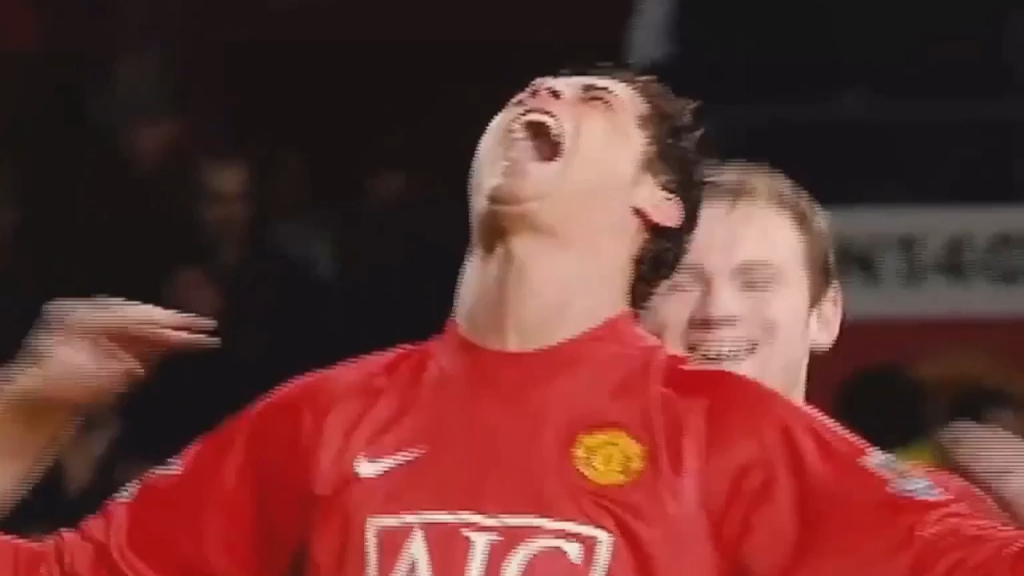
Yet such a scenario was to discount the wiles of Ferguson, who hasn’t been United manager since 2012-13, but in a nice piece of circular symmetry, was apparently influential in Ronaldo’s return to the red half of Manchester.
In an Instagram post shortly after completing the deal, the 36-year-old wrote: “This is absolutely 100% the stuff that dreams are made of! My first domestic League, my first Cup, my first call to the Portuguese National team, my first Champions League, my first Golden Boot and my first Ballon d’Or, they were all born from this special connection between me and the Red Devils.
“History has been written in the past and history will be written once again! You have my word! … PS – Sir Alex, this one is for you …”
https://www.instagram.com/p/CTO-ldLgiVr/?utm_source=ig_web_copy_link
The arrival of Ronaldo instantly makes Manchester United box office viewing once again, after eight seasons of underachievement for a club that was arguably football’s most famous through the back half of the 1990s and the first decade of the 21st century.
The real issue for fans however, is whether his presence can translate into silverware; since Ferguson’s exit in 2012-13, United have failed to win the Premier League, and have reached the quarter-finals of the UEFA Champions League just once, having played in the UEFA Europa League (a step down from the Champions League) in four of those seasons.
Last season, they failed to get out of the group stages of the Champions League, and although that meant they qualified for the Europa League – in which they were then beaten finalists – such a path would be unacceptable for a player of Ronaldo’s pedigree.
The Portuguese striker and five-time Champions League winner is perhaps the greatest player in the tournament’s prestigious history, with his 134 goals from 176 games making him the competition’s leading scorer.
Manchester United’s favourable group draw has them well placed to progress to the knockout stages. They face Young Boys (2020-21 Swiss Super League winners), Atalanta (third in Serie A) and Villarreal, who they were beaten by on penalties in the Europa League final in May.
The addition of Ronaldo, as well as his former Madrid teammate Raphaël Varane, adds vast Champions League experience and knowhow to manager Ole Gunnar Solskjær’s squad, to the point that United fans will again start to believe they can compete with Europe’s best.
Critics however, have suggested the signing of the legendary No.7 (who will again wear the famous shirt, with fellow veteran striker Edinson Cavani switching to No.21) might be a boon only in terms of nostalgia and global brand appeal, as opposed to pure footballing strategy.
In the latter context, the arguments go as follows: Ronaldo’s goals-per-year return has been descending since he turned 30; he has only added to what was already a surplus of strikers at United and as such he could stymie the first-team opportunities of a host of talented youngsters; and the club would have been wiser spending their money on a high-quality holding central midfielder, where they lack a world-class option.
But it is difficult not to be seduced by the simple fact that this is Ronaldo, a man who can genuinely stake a claim as football’s GOAT. And of course, statistics can skew the other way, too – try this one, for example: since Ronaldo’s move to Juventus, where he scored 101 goals in 134 games, only Robert Lewandowski (147 goals), Lionel Messi (120), and Kylian Mbappe (112) have scored more for their respective clubs.
And this: in the 12 years between Ronaldo’s departure from and return to United, the club’s leading goal-scorer was Wayne Rooney, who scored 156 times, while through the same period, Ronaldo netted 551 times.
Now the master marksman is back. The prodigal son has returned, and the Theatre of Dreams is set to come alive once again.
How it all ends, is still to be written.


